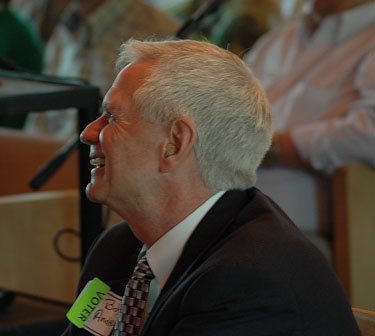Resilience and Community
Resilience in times of change and chaos is not about toughing it out, making lemonade out of lemons or living in denial about your feelings. According to the Mayo Clinic medical web site
(http://www.mayoclinic.com/health/resilience/MH00078), getting connected with others is an important part of being able to bounce back. The author says to "Get connected. Build strong, positive relationships with family and friends, who can listen to your concerns and offer support. Volunteer or get involved in your community. "A sense of connectedness can sustain you in dark times." Pastoral leaders need the support of others to survive the challenges of transition. My best support comes from those outside the church - in other denominations or church affiliations. One of my best support relationships is with someone who is not yet a follower of Jesus in a confessional sense. We all know the value of our web of connectional relationships yet few of us nurture this network intentionally. I know that I didn't until my later years. I depended on spouse and family members solely and that was not enough to provide the full spectrum of feeback, spiritual direction and sheer "holding up" what we need at times.
Developing authentic community in a congregation is not easy. Most of our congregations are the heirs to a congregational culture that has tended toward religious faith as "private." Many church leaders live on "coffee hour sound bites" as sufficient for "community". A faith community will be resiliant as a body when they are bound in trusting faith relationships.
This is different than "trauma bonding." We've all heard the stories about the church building that burned and resulting in the congregation rallying around to support a rebuilding effort.
Trauma and tragedy evoke compassion for the short run. Most of the difficult issues we face today need intentional planning for confrontation, deep communication and the enslistment of all members to move ahead in a new or challenging direction.
A simple self assessment tool is available at the Mayo Clinic site mentioned above: http://www.mayoclinic.com/health/resiliance/MH00078 I tried answering the questions from a congregation's possible point of view and it didn't go very well. Give it try - note your discoveries in the feedback forms on the blog.
Holy Week Blessings (2009)
Bob Anderson
Monday, April 06, 2009
Subscribe to:
Comments (Atom)




